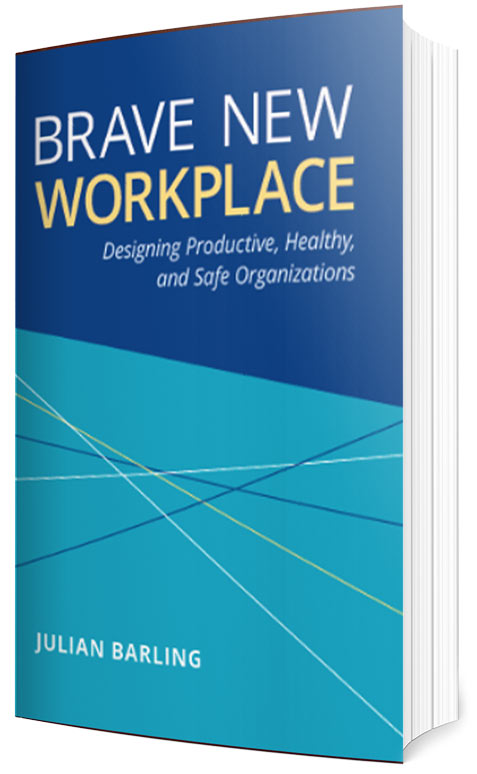Brave New Workplace
Discover the seven keys to productive, healthy and safe organizations
After a period of tremendous upheaval, we are entering a new age of work. Employees are demanding change—and it’s up to organizations to transform alongside them.
What does the future of work need to look like if organizations are to thrive? What steps should leaders take to create environments where employees feel appreciated and inspired to do great work?
In this 60-minute webinar, leadership expert Julian Barling, Borden Chair of Leadership at Smith School of Business, covers what every leader needs to know to improve the workplace. Professor Barling is the author of the new book Brave New Workplace: Designing Productive, Healthy, and Safe Organizations, and this session covers key lessons from the book.
Participants learn about the seven elements to building an exceptional workplace: high-quality leadership, autonomy, belonging, fairness, growth, meaning and safety. Employees are not asking management to relinquish total control; rather, small changes in these seven elements will make a big difference to employees and organizations.
This webinar was held on January 25, 2023.

Brave New Workplace
In Brave New Workplace, Julian Barling argues that we should focus on creating environments in which employees can flourish, rather than relying on the resiliency of workers to withstand difficult working conditions. Synthesizing a century of research and lessons from everyday experiences, Professor Barling identifies seven elements that are key to building an exceptional workplace: high-quality leadership, autonomy, belonging, fairness, growth, meaning and safety.
Session Leader

Dr. Julian Barling
Julian Barling is a professor and Borden Chair of Leadership at Smith School of Business. He is an authority on transformational leadership and was named one of the 10 most influential leadership researchers in the world in one analysis. Julian has received numerous awards for teaching and research. In 2002, he was elected as a Fellow of the Royal Society of Canada and received the National Post’s “Leaders in Business Education” award. Julian is an elected fellow of several international research societies, and the author of over 200 research articles and 15 books, including The Science of Leadership: Lessons from Research for Organizational Leaders.